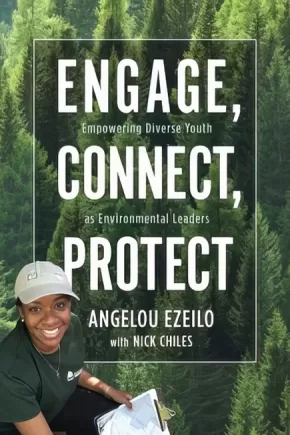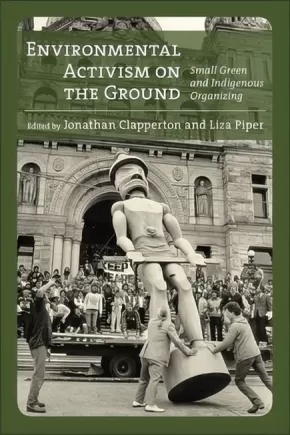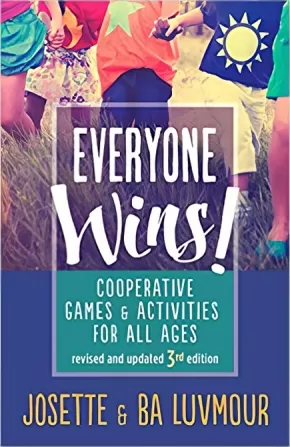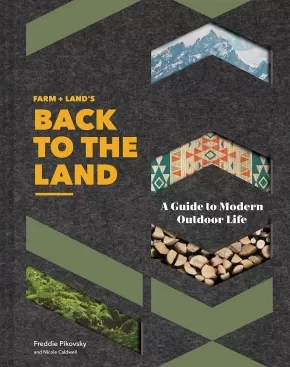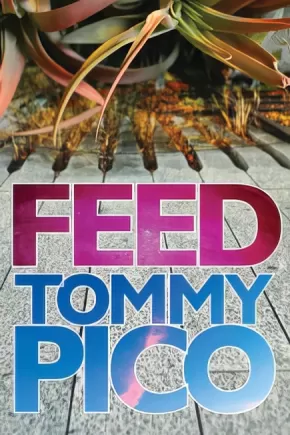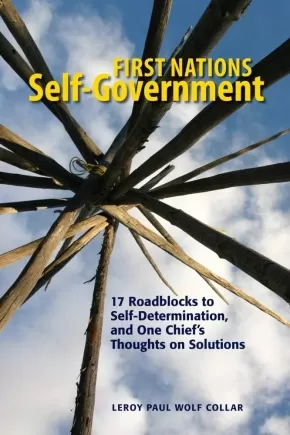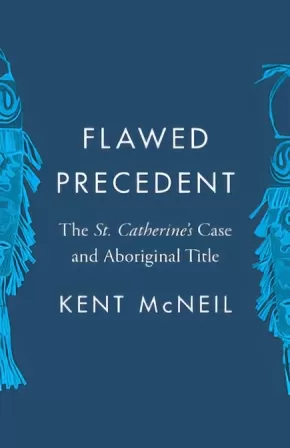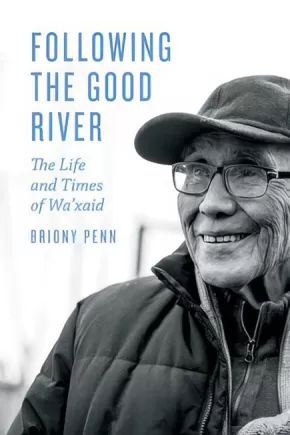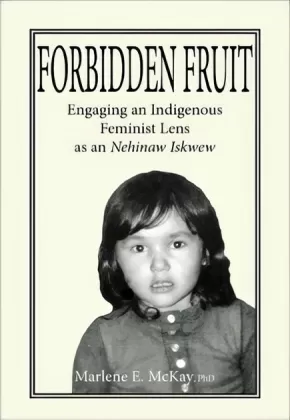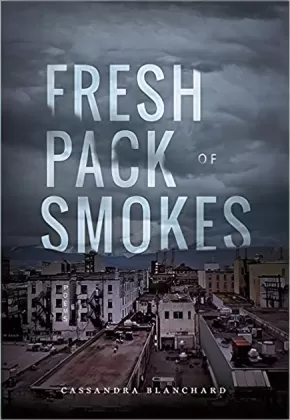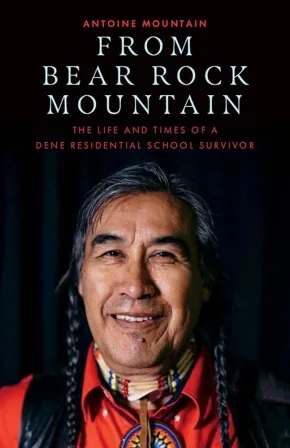Books
Synopsis:
Building environmental strength through a diversity of youth.
While concern about the state of our land, air, and water continues to grow, there is widespread belief that environmental issues are primarily of interest to wealthy white communities. Engage, Connect, Protect explodes this myth, revealing the deep and abiding interest that African American, Latino, and Native American communities – many of whom live in degraded and polluted parts of the country – have in our collective environment.
Part eye-opening critique of the cultural divide in environmentalism, part biography of a leading social entrepreneur, and part practical toolkit for engaging diverse youth, Engage, Connect, Protect covers:
- Why communities of color are largely unrecognized in the environmental movement
- Bridging the cultural divide and activate a new generation of environmental stewards
- A curriculum for engaging diverse youth and young adults through culturally appropriate methods and activities
- A resource guide for connecting mainstream America to organizations working with diverse youth within environmental projects, training, and employment.
Engage, Connect, Protect is a wake-up call for businesses, activists, educators, and policymakers to recognize the work of grassroots activists in diverse communities and create opportunities for engaging with diverse youth as the next generation of environmental stewards.
Educator Information
While this work has a US focus, it is still extremely relevant in other countries like Canada.
Additional Information
256 pages | 6.00" x 9.00"
Synopsis:
Environmental Activism on the Ground draws upon a wide range of interdisciplinary scholarship to examine small scale, local environmental activism, paying particular attention to Indigenous experiences. It illuminates the questions that are central to the ongoing evolution of the environmental movement while reappraising the history and character of late twentieth and early twenty-first environmentalism in Canada, the United States, and beyond.
This collection considers the different ways in which Indigenous and non-Indigenous activists have worked to achieve significant change. It examines attempts to resist exploitative and damaging resource developments, and the establishment of parks, heritage sites, and protected areas that recognize the indivisibility of cultural and natural resources. It pays special attention to the thriving environmentalism of the 1960s through the 1980s, an era which saw the rise of major organizations such as Greenpeace along with the flourishing of local and community-based environmental activism.
Environmental Activism on the Ground emphasizes the effects of local and Indigenous activism, offering lessons and directions from the ground up. It demonstrates that the modern environmental movement has been as much a small-scale, ordinary activity as a large-scale, elite one.
Reviews
"Environmental Activism on the Ground succeeds splendidly in complicating and enriching our understanding of modern environmentalism. Focusing on Indigenous and non-Indigenous activists in an impressive range of settings, Jonathan Clapperton and Liza Piper draw together and interpret diverse methodological and conceptual insights in a way that gives new, deserved prominence to those who have strived—and continue to strive—for environmental justice at the local level. These accounts left me both enlightened and heartened. Scholars from across the humanities and social sciences will welcome this volume." - Richard A. Rajala, Department of History, University of Victoria.
Educator Information
Table of Contents:
Illustrations
Acknowledgments
Introduction: In the Shadow of the Green Giants: Environmentalism and Civic Engagements - Jonathan Clappeton & Liza Piper
Part 1: Processes and Possibilities
1. Strategies for Survival: First Nations Encounters with Environmentalism - Anna J. Willow
2. Native/Non-Native Alliances: Challenging Fossil Fuel Industry Shipping at Pacific Northwest Ports - Zoltán Grossman
3. Conserving Contested Ground: Soverigenty-Driven Stewardship by the White Mountain Apache Tribe and the Fort Apache Heritage Foundation - Jon R. Welch
4. From Southern Alberta to Northern Brazil: Indigenous Conservation and the Preservation of Cultural Resources - Sterling Evans
5. Parks For and By the People: Acknowledging Ordinary People in the Formation, Protection, and Use of State and Provincial Parks - Jesica M. DeWitt
Part 2: Histories
6. Alternatives: Environmental and Indigenous Activism in the 1970s - Liza Piper
7. Marmion Lake Generating Station: Another Northern Scandal? - Tobasonakwut Peter Kinew
8. Environmental Activism as Anti-Conquest: The Nuu-chah-nulth and Environmentalists in the Contact Zone of Clayoquont Sound - Jonathan Clapperton
9. Local Economic Independence as Environmentalism: Nova Scotia in the 1970s - Mark Leeming
10. “Not an Easy Thing to Implement”: The Conservation Council of New Brunswick and Environmental Organization in a Resource-Dependent Province, 1969-1983 - Mark J. McLaughlin
11. The Ebb and Flow of Local Environmental Activism: The Society for Pollution and Environmental Control (SPEC), British Columbia - Jonathan Clapperton
12: From Scoieal Movement to Environmental Behemoth: How Greenpeace Got Big - Frank Zelko
Afterword: Lessons from the Ground Up - Jonathan Clapperton & Liza Piper
Bibliography
List of Contributors
Index
Additional Information
752 pages | 6.00" x 9.00"
Authenticity Note: Because this work includes contributions from Indigenous peoples, it has been labelled as containing Authentic Indigenous Text.
Synopsis:
Over 25,000 copies sold — promote optimal well-being and social justice through 170+ games and activities for all ages.
At this critical point of human evolution, we want our children to have the ability to resolve conflict, communicate positively, build social skills, and increase self-esteem so that they may actualize their potential and live in well-being.
The highly sought-after 3rd edition of the best-selling, Parent Choice Award-winning book Everyone Wins: Cooperative Games and Activities for All Ages features over 170 well-designed cooperative games and activities. Developmentally appropriate and indexed according to age level, group size, activity level, and location, Everyone Wins offers great value through evaluating interpersonal dynamics, teaching social justice, and assessing development capacities.
By popular request, new features include:
- Information on development and learning in children and youth
- New and updated games and activities
- An overview of Natural Learning Relationships for whole-child development
Everyone Wins is an easy to use, quick reference guide for everyone who cares for and about children, education, and the actualization of social well-being in a diverse range of environments.
Reviews
"Everyone Wins! can be used during PE classes—in the gym or on the school field—during recess breaks, in the classroom, or in outdoor education time. Playing the games as suggested in the book would be a great way to start, and after some practice, students could help to create variations. For intermediate students, this could also lead to the students inventing their own games to share with their classmates, allowing them to become the teachers during PE classes" - Cindy Haack, Canadian Teacher Magazine, Fall 2019 Issue
Additional Information
176 pages | 5.50" x 8.50" | 5 illustrations | 3rd Edition
Synopsis:
Selected by Kathy Fagan as a winner of the 2018 National Poetry Series, Eyes Bottle Dark with a Mouthful of Flowers is a debut collection of poems by a dazzling geologist of queer eros.
Drunktown, New Mexico, is a place where men “only touch when they fuck in a backseat.” Its landscape is scarred by violence: done to it, done on it, done for it. Under the cover of deepest night, sleeping men are run over by trucks. Navajo bodies are deserted in fields. Resources are extracted. Lines are crossed. Men communicate through beatings, and football, and sex. In this place, “the closest men become is when they are covered in blood / or nothing at all.”
But if Jake Skeets’s collection is an unflinching portrait of the actual west, it is also a fierce reclamation of a living place—full of beauty as well as brutality, whose shadows are equally capable of protecting encounters between boys learning to become, and to love, men. Its landscapes are ravaged, but they are also startlingly lush with cacti, yarrow, larkspur, sagebrush. And even their scars are made newly tender when mapped onto the lover’s body: A spine becomes a railroad.“Veins burst oil, elk black.” And “becoming a man / means knowing how to become charcoal.” Rooted in Navajo history and thought, these poems show what has been brewing in an often forgotten part of the American literary landscape, an important language, beautiful and bone dense.
Sculptural, ambitious, and defiantly vulnerable, the poems of Eyes Bottle Dark with a Mouthful of Flowers are coal that remains coal, despite the forces that conspire for diamond, for electricity.
Reviews
“Jake Skeets writes with such sparse yet full beauty, you sometimes don’t know where the source of the power of these poems comes from. It is in the power of his language, in the craft, of course. It is in how the brutal experience of pain and loss can become a thing of beauty, which is where grace lives, which is where the best art comes from. There is so much bottle-dark beauty here. Skeets is a new, essential voice in poetry, in literature.”—Tommy Orange
"Incredibly beautiful . . . Skeets's simple lines are highly impactful as they explore the complexities of love, desire and drunkenness and dirt and death."—Electric Literature
"Skeets's raw debut offers beautiful imagery and memorable emotional honesty . . . [this collection] subtly rebukes the hypermasculinity that breeds homophobia and violence and excoriates the centuries of oppression that have caused the scourge of alcohol abuse in Native American communities."—Publishers Weekly
“On its surface, Eyes Bottle Dark with a Mouthful of Flowers is an examination of toxic masculinity through the lens of a queer, indigenous Southwesterner, a book in which alcoholism, violence, and sex under cover of night are both ruefully and sensually described. But experiencing Jake Skeets’s collection is more akin to listening to a musical score to, or watching the choreography of, one Diné man’s vivid boyhood, the family and community of that boyhood, and the landscape holding them all. Indeed, like a lover, the land of these poems enters and ornaments Skeets’s men, old and young, dead and alive. His images haunt, and his use of repetition, field, and fragment provide the book’s structural genius. His is a major debut that feels to me timely and timeless—‘boys only hold boys / like bottles’—and is my singular joy to introduce.”—Kathy Fagan
“Jake Skeets takes us to ‘The Indian Capital of the World,’ a landscape of erosion and erasure, where ‘boys only hold boys / like bottles’ and eros is a dangerous thing. In the brush and horseweed, ghosts and trains and abandoned trailers, a young Diné attempts to answer all the question marks of adolescence and early adulthood, desire and death commingling around him. These are poems born of unspokenness, testing the limits of language, love, and silence.”—D. A. Powell
"An amazing debut collection from Diné poet Jake Skeets that explores his experience and that of Native peoples with the American Southwest. Skeets's ability to use form and innovate with structure amplify his innate talent for constructing language that is simultaneously lush and razor sharp. Grappling with alcoholism, queer sexuality, and toxic masculinity, his poems confront and challenge; but through its swirl of violence and beauty, Eyes Bottle Dark with a Mouthful of Flowers is always vividly gorgeous."—Caleb Masters, Bookmarks
Additional Information
96 pages | 5.50" x 8.50"
Synopsis:
FARM + LAND'S Back to the Land: A Modern Guide to Outdoor Life is a collection of stories about slow living, sustainability, and the value of doing things with your own two hands.
This gorgeous book features remarkable narratives, essential how-tos, and hundreds of breathtaking photographs from people who have embraced lives of adventure in wild places.
With gorgeous photography, engaging stories, practical tips, and useful illustrations, this book offers an escape into a world of simple pleasures, contentment, and a rural way of life.
- Focuses on the back-to-the-land movement
- A visually driven celebration of cozy homes and wild landscapes
- Embraces life's simple and enduring pleasures
FARM + LAND'S Back to the Land: A Modern Guide to Outdoor Life features places like a spectacular treehouse suspended above a lush forest, a cozy cabin perched on a mountainside, and a small farm growing heirloom vegetables in the high desert.
This book is a must-have for outdoor enthusiasts and anyone who has ever dreamed of escaping to a simpler way of life.
- Delivered in a highly giftable and handsome volume that inspires feelings of wanderlust.
- The perfect gift for Father's Day and the holidays, as well as for outdoors enthusiasts, travel lovers, camping fans, and readers of Dwell, Modern Farmer, and Kinfolk.
- Includes information on homesteading and outdoor skills such as how to build a desert vegetable garden; how to cut, split, and stack firewood; how to build a wood-fired hot tub; how to raise chickens and honeybees; how to make essential oils; and more!
Additional Information
272 pages | 7.65" x 9.60" | 350 full-colour photographs
Synopsis:
From the Winner of the Whiting Award, an American Book Award, and finalist for a Lambda, Tommy Pico's Feed is the final book in the Teebs Cycle.
Feed is the fourth book in the Teebs tetralogy. It's an epistolary recipe for the main character, a poem of nourishment, and a jaunty walk through New York's High Line park, with the lines, stanzas, paragraphs, dialogue, and registers approximating the park's cultivated gardens of wildness. Among its questions, Feed asks what's the difference between being alone and being lonely? Can you ever really be friends with an ex? How do you make perfect mac & cheese? Feed is an ode of reconciliation to the wild inconsistencies of a northeast spring, a frustrating season of back-and-forth, of thaw and blizzard, but with a faith that even amidst the mess, it knows where it's going.
Reviews
"Funny, irreverent, profound. This book is an ode to love and language and food and what right now sounds like. It’s also a meditation on what it means to belong on/to this planet/universe. Delivered in headlines, texts, conversations, song lyrics, puns, rhymes, and speculation about the possibility of life on other planets, Tommy Pico’s Feed sprawls across time and this country. It is endlessly inventive and stays fun while bringing the heat and weight of a world we’re all helplessly watching burn down. As his character/AKA Teebs says of Oakland rapper Two $hort, the same is true of Tommy Pico in this book and in general: Vigor is the art he argues for."—Tommy Orange
"Tommy Pico’s Feed is the poet’s most ambitious work yet. Part tour diary, part tracklist, part play, part by part Pico tops his epic run of books off with this gut-wrenching, gut-busting, gutter mouth offering of a body in lust, in isolation, in danger, in memory, in future and all the transits between. Feed is a feast of Pico’s signature intellect, humor, and linguistic demolition—all sharper than ever. No one corrals our day’s chaos like Pico, who serves it up to us as some of the wildest verse the world has ever seen." —Danez Smith
Additional Information
84 pages | 6.00" x 9.00"
Synopsis:
Indigenous Peoples in Canada are continuing to assert their right to self-determination in this era of reconciliation. While dozens of Indigenous communities have signed varying forms of self-government agreements with the federal government, Indigenous Nations still face many obstacles along the path to true self-determination.
As a former Chief of Siksika Nation in southern Alberta, Leroy Wolf Collar dealt with many of the same problems other Indigenous Nations face across the country. From serious housing shortages to the lack of opportunities for youth, Chief Wolf Collar experienced the challenges and frustrations that come from operating in a colonial system still constrained by the Indian Act.
How do Indigenous Peoples move on from this defective system? Chief Wolf Collar identifies 17 issues that currently hinder Indigenous Nations—including broken treaty promises, problems with common forms of band administration, and the intrusion of provincial governments—along with potential solutions to overcome them.
This guide is for current and aspiring Indigenous leaders who want to increase their understanding of good governance, management, and leadership, as well as those who want to explore issues around Indigenous self-determination in Canada.
Educator Information
Recommended in the Canadian Indigenous Books for Schools 2020/2021 resource list for grades 11 and 12 for use in these areas: Law, English Language Arts, and Social Studies.
Additional Information
128 pages | 6.00" x 9.00"
Synopsis:
In 1888, the Judicial Committee of the Privy Council in London ruled in St. Catherine’s Milling and Lumber Company v. The Queen, a case involving the Saulteaux people’s land rights in Ontario. This precedent-setting case would define the legal contours of Aboriginal title in Canada for almost a hundred years, despite the racist assumptions about Indigenous peoples at the heart of the case.
In Flawed Precedent, preeminent legal scholar Kent McNeil thoroughly investigates this contentious case. He begins by delving into the historical and ideological context of the 1880s. He then examines the trial in detail, demonstrating how prejudicial attitudes towards Indigenous peoples and their use of the land influenced the decision. He also discusses the effects that St. Catherine’s had on Canadian law and policy until the 1970s when its authority was finally questioned by the Supreme Court in Calder, then in Delgamuukw, Marshall/Bernard, Tsilhqot’in, and other key rulings.
McNeil has written a compelling and illuminating account of a landmark case that influenced law and policy on Indigenous land rights for almost a century. He also provides an informative analysis of the current judicial understanding of Aboriginal title in Canada, now driven by evidence of Indigenous law and land use rather than by the discarded prejudicial assumptions of a bygone era.
This book is vital reading for everyone involved in Aboriginal law or title, legal historians and scholars, and anyone interested in Indigenous rights in Canada.
Additional Information
224 pages | 5.50" x 8.50" | 10 b&w photos, 4 maps
Synopsis:
Based on recorded interviews and journal entries this major biography of Cecil Paul (Wa’xaid) is a resounding and timely saga featuring the trials, tribulations, endurance, forgiveness, and survival of one of North American’s more prominent Indigenous leaders.
Born in 1931 in the Kitlope, Cecil Paul, also known by his Xenaksiala name, Wa’xaid, is one of the last fluent speakers of his people’s language. At age ten he was placed in a residential school run by the United Church of Canada at Port Alberni where he was abused. After three decades of prolonged alcohol abuse, he returned to the Kitlope where his healing journey began. He has worked tirelessly to protect the Kitlope, described as the largest intact temperate rainforest watershed in the world. Now in his late 80s, he resides on his ancestors’ traditional territory.
Following upon the success of Wa'xaid's own book of personal essays, Stories from the Magic Canoe, Briony Penn's major biography of this remarkable individual will serve as a timely reminder of the state of British Columbia's Indigenous community, the environmental and political strife still facing many Indigenous communities, and the philosophical and personal journey of a remarkable man.
Additional Information
376 pages | 6.00" x 9.00"
Synopsis:
Forbidden Fruit: Engaging an Indigenous Feminist Lens as an Neninaw Iskwew is a feminist based memoir acknowledging that people are measured, categorized, and placed in a hierarchal order that is deeply influenced by discourses predicated upon social processes.
Dr. McKay’s Indigenous feminism is about being aware that due to the colonial patriarchy that has seeped through Indigenous social and cultural systems, Indigenous women are positioned differently in economic, social and political structures. Marlene masterfully uses her own life experiences to assert that colonialism and Indigenous cultures obscure the role of women in a way that continues both their marginalization and the binary of the princess/squaw (p. 11).
Additional Information
98 pages | 6.00" x 9.00"
Synopsis:
Forty Canadian fathers, from the prime minister to prominent athletes and artists, reflect on their unique parenting challenges and accomplishments.
When Tessa Lloyd’s sons-in-law became fathers, she searched for resources that would help inspire them—especially parenting stories from other fathers. However, that book didn’t seem to exist. As a counsellor for children and families, Lloyd understood the ways a father-child relationship can have a lasting effect through the generations. Seeing a need, Lloyd decided to gather these stories herself.
This resulting volume collects the stories and portraits of forty Canadian fathers who open up about both their own fathers and their deeply personal parenting experiences. This diverse group includes Prime Minister Justin Trudeau, writer Lawrence Hill, academic Niigaan Sinclair, athlete Trevor Linden, restaurateur Vikram Vij, anthropologist Wade Davis, musician Alan Doyle, artist Robert Bateman and philanthropist Rick Hansen. The contributors reflect on their varied parenting experiences and challenges, including parenting while incarcerated, parenting across cultural barriers, parenting through divorce, parenting while transgender, parenting as a celebrity and parenting with a disability. Many common themes emerge throughout the stories, including the process of overcoming cultural messages that encourage men to be strong, authoritarian and emotionally unavailable.
The stories are extraordinarily candid and vulnerable, as the fathers describe their own failings, regrets and childhood traumas, as well as the humbling process of trying to do better. In one anecdote, Dr. Greg Wells describes the experience of meeting another father walking the empty streets at three a.m. with an infant, and how that moment of shared recognition gave him strength at a difficult time. The stories in this book offer a similar glimpse into the shared experiences and trials of fatherhood, but also offer fascinating reflections on the more universal experiences of finding one’s place within a family and striving to be a better person for the sake of others.
Additional Information
320 pages | 6.30" x 9.25" | 80 B&W Photographs
Authenticity Note: This work has received the Authentic Indigenous Text label because of the Indigenous contributions to this work. Not all contributions are from Indigenous people, though. It is up to readers to determine if this work is suitable for their purposes.
Synopsis:
An essential guide to mindfulness activities and strategies that help students cultivate the skills they need for self-regulation, stress management, and learning. Simple activities and practices throughout the book are designed to strengthen areas of the brain that allow students to better manage their attention, emotions, and behavior in the classroom and beyond. Child-friendly language is used to explain mindfulness, physiology, and brain science.
This practical book shows you how to incorporate mindfulness in your classroom practice in just minutes a day, and includes definitions, teaching tips, and activities for
- making mindful breathing a core foundational practice
- using the five senses as anchors for mindfulness
- helping students recognize, name, and manage their feelings
- exploring the connection between body and mind through movement
- incorporating practices that encourage students to focus their attention in the present moment
- creating and using a Peace Corner in the classroom that is devoted to self-regulation and self-care
- developing habits of mind that are central to resilience
This comprehensive resource offers step-by-step instructions, scripts, activity sheets, ready-to-use templates, and scientific insights. Based on extensive classroom experience, this highly readable book includes stories from teachers who successfully incorporate mindfulness in their classroom practice.
Ideal for new and experienced teachers, Fostering Mindfulness is committed to building skills that nurture attention, cognitive and emotional development, and overall well-being.
Educator Information
Recommended for educators teaching ages 5 - 13.
Additional Information
167 pages | 8.30" x 10.80"
Synopsis:
Simple classroom techniques for to help students make connections, think critically, and construct meaning
In freewriting, we write continuously: we begin with a prompt and keep our pen or pencil moving throughout the entire duration. We do not stop to question or censor ourselves; we do not concern ourselves with spelling, punctuation, capitalization, or grammar; we do not let critical thoughts creep into our freewriting time. This book shows teachers how to use freewriting to help kids write well and more, regardless of grade level, subject, time of day, or time of year. It is not a difficult process to implement and yet it makes a significant difference in teacher attitudes, student confidence, and, ultimately, student writing abilities.
Educator Information
Recommended for educators of children ages 5 - 13.
Additional Information
144 pages | 8.30" x 10.80"
Synopsis:
“This night in Oppenheimer Park Dan asked me to shit-kick this chick in the face as she owed money and I said no because I didn’t know who she was and I wasn’t about to play with fire so he sat on the bench then stood up and did a flying kick twice to her chin and she convulsed and passed out he said he didn’t want to spill blood because she had HIV…”—“Tales”
Dissecting herself and the life she once knew living in Vancouver’s Downtown Eastside as a bonafide drug addict, Blanchard writes plainly about violence, drug use and sex work in Fresh Pack of Smokes, offering insight into an often overlooked or misunderstood world.
Reviews
“Reading Cassandra Blanchard’s debut poetry collection Fresh Pack of Smokes feels like, to borrow a phrase from her work, someone “poured a bucket of blood” on your head. Such visceral images flood the pages of Blanchard’s autobiographical stories, pulling readers in with humanizing force.” - Emma Cooper, The Tyee
Educator Information
Recommended in the Canadian Indigenous Books for Schools 2019-2020 resource list as being useful for grade 12 students for the following subjects: English Language Arts, Social Justice.
Contains foul and sexual language, graphic content, violence, interpersonal abuse, and drug use, which may be disturbing to some readers.
Additional Information
96 pages | 5.50" x 8.00"
Synopsis:
In this poetic, poignant memoir, Dene artist and social activist Antoine Mountain paints an unforgettable picture of his journey from residential school to art school—and his path to healing.
In 1949, Antoine Mountain was born on the land near Radelie Koe, Fort Good Hope, Northwest Territories. At the tender age of seven, he was stolen away from his home and sent to a residential school—run by the Roman Catholic Church in collusion with the Government of Canada—three hundred kilometres away. Over the next twelve years, the three residential schools Mountain was forced to attend systematically worked to erase his language and culture, the very roots of his identity.
While reconnecting to that which had been taken from him, he had a disturbing and painful revelation of the bitter depths of colonialism and its legacy of cultural genocide. Canada has its own holocaust, Mountain argues.
As a celebrated artist and social activist today, Mountain shares this moving, personal story of healing and the reclamation of his Dene identity.
Educator Information
Recommended in the Canadian Indigenous Books for Schools 2019-2020 resource list as being useful for grades 9 to 12 in the following subject areas: English Language Arts, Social Studies.
Included in this story are personal stories of residential school and addiction.
Additional Information
272 pages | 5.50" x 8.50"

